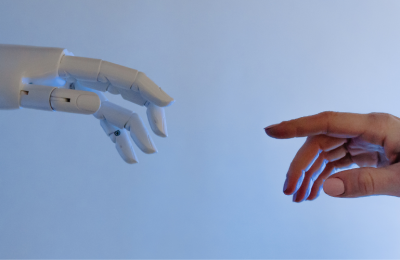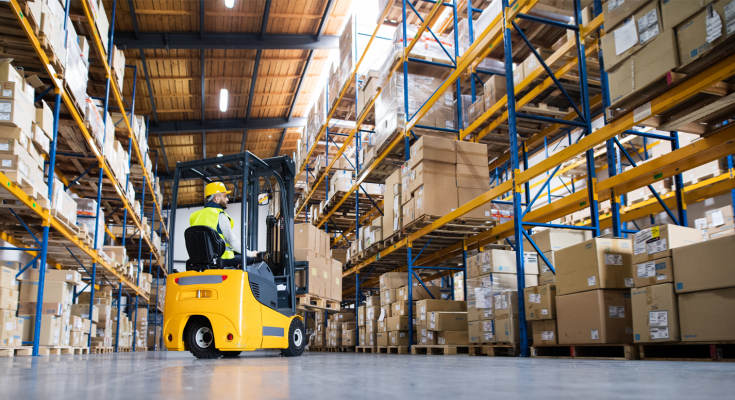Laura Palmer, Marketing and Business Development Director at Promotional Handling Limited, shares how businesses can implement sustainable strategies within their business supply chain.
As an industry, how do we ensure that Sustainability does not become something we just pay lip service to, but transforms into a permanent and powerful consideration within business decisions and planning?
As the supply chain forms the basic function of most businesses, building sustainability into it is probably the most effective approach. I would propose two basic rules to achieve effective sustainability; mitigation of negative environmental impacts and influencing positive impacts within the following areas of the supply chain;
Your customers – Ensuring your marketing campaigns are effective, impactful and sustainable
Your Business – Adapt and change your business model to reduce environmental impacts
Your Staff – Initiate conversations with your staff on the issue and making it an integral part of your business from top down
Your Suppliers – Engage with your suppliers on a sustainable basis
So where can we reasonably reduce our environmental impact?
We have already seen Brands like Burger King move to meatless alternatives and pledge to remove plastic toys from their kid’s meal. However, in the value offering to consumers, we will still need free samples, premiums and giveaways. Therefore, there are things we can change to reduce environmental impact and improve sustainability, for example.
Reusability is the standout consideration. Offer items that consumers will want to keep and use repeatedly. Single use and poorly made plastics are problematic, premiums should be designed and manufactured for longer term use.
Alternative Materials like wood or Bamboo can be effective. Make sure the manufacture of these alternative materials is sustainable and environmentally responsible. It is not always as easy as it seems, so do your research and put pressure on your suppliers to give you sustainable options.
Reduce Transportation, think how the size and weight of items can change their transportation costs and therefore the environmental impact. A good example of this is glass vs plastic bottles. Glass is more sustainable but as it is heavier it has a bigger transportation Carbon footprint.
Use local Suppliers and Distributors where possible. This is going to be heavily influence by cost, but it should be considered if viable.
Use recyclable recycled or biodegradable packaging. I have seen examples of packaging proclaiming to be made from 100% recycled wood pulp, printed with vegetable ink, fully biodegradable……and then shrink-wrapped with plastic film which is not recyclable.
If you want to reduce Carbon Emissions and Environmental Pollution in the delivery of a campaign, it is important to do your research and plan carefully. Think through every step of your campaign from the point of production to where it will end up. Make sure planning is joined up and that you have communicated sustainable intentions to your supply chain effectively. Get round-table discussions going with everyone involved in a campaign, suppliers will be able to give you new ideas for sustainable solutions and hopefully avoid pitfalls.
So how can we effect Positive impacts?
Within our own businesses we all have an Environmental Policy but what are we doing to make the small step changes needed to add up to the bigger picture. Changes like providing adequate recycling facilities, engaging and educating staff on the issue, sharing your intentions with a wider audience and looking for how others are approaching the problem.
The effective use of technology can help a business become more sustainable. Staff do not need to travel to every client meeting when video conferencing can be just as effective. Technology can also allow some staff to work from home rather than commute to the office.
Where possible, work with suppliers that are similarly committed. If we collectively make sustainability more transactional then it can be pretty influencing across the business sector. It needn’t add cost or cause pain as most businesses will adapt quickly.
Perhaps challenge your business to change 3 things that will have a positive influence or impact in the next 12 months. Talk to your supply chain in terms of Sustainability, ask them for sustainable solutions and challenge them to join you in doing their bit.
Finally, we are an industry of talented individuals, our core skill after all, is being given a problem and thinking of creative ways to solve it. Sustainability could be viewed as a positive opportunity within our sector. By facing the challenge head-on, we can benefit both ourselves, our clients and the planet.
Creative Sales Promotion campaigns that encourage changes in consumer behaviour can be a way to further our impact on sustainability. Get people planting seeds and trees, protecting the Environment, Promote the 3 R’s (Reduce, Reuse, Recycle), encourage getting active outside and eating locally.
I believe that small changes by many people will make the greatest impact. Within business we can exert persuasive influence on our customers, staff and suppliers. Starting with our own intentions and policies and then effecting these down the supply chain.
If you want to find out how PHL can help you, get in touch with Laurap@promotionalhandling.co.uk






















